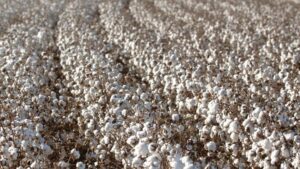Industry News is geared to seed professionals and delivers the people, industry, business and product news you need to know. Submissions are welcome. Email us at news@issuesink.com.
People News
Dow AgroSciences has announced that former director of Indiana’s State Department of Agriculture, Joseph Kelsay, will join its global regulatory and government affairs team as the senior manager of biotechnology affairs. Kelsay’s proven leadership within agriculture will be integral to advancing the company’s growth strategy.
Industry veteran Peter Peerbolte has joined Becker Underwood as a product manager for the company’s corn, cotton, alfalfa, wheat, sorghum, rice and vegetables products. Peerbolte comes to Becker Underwood from Bayer CropScience, where he served as regional crop team lead for broadacre crops. He will be based in Raleigh, N.C.
Chuck Cornelius, president of Cornelius Seed, has been elected president of the Independent Professional Seed Association for the coming year. The election took place at the 24th annual IPSA conference held recently in Tucson, Ariz. IPSA represents nearly 100 seed companies from more than 25 U.S. states and Canada that produce corn, soybeans, small grain and forage seeds.
Valent U.S.A. Corp. has promoted Jim Petta to manager of its biorational business unit. This business unit is responsible for the company’s portfolio of biological crop protection and crop enhancement products for agriculture in the United States and Canada. Petta will be based in the company’s Walnut Creek, Calif., headquarters.
Canterra Seeds has announced that Duane Ransome has been promoted to the role of oilseeds production manager. Ransome brings a high level of experience to the Canterra team, having spent nearly 15 years with Agricore United and Viterra in various roles. Ransome will oversee the production, processing and logistics for the company’s line of canola hybrids as well as Agrisoma Bioscience’s Resonance carinata.
The American Seed Trade Association has announced that Bernice Slutsky, ASTA’s vice president of science and international affairs, has been promoted to the newly created position of senior vice president of domestic and international policy as part of an overall organizational restructuring.
Bayer CropScience LP has appointed Gilles Galliou as president of its North American Environmental Science Division. Galliou has replaced Jacqueline Applegate, who now serves as CEO of Bayer CropScience Australia and New Zealand, as well as senior Bayer representative of Australia, New Zealand and Oceania.
Integrated Coating and Seed Technology Inc. has promoted David Pickenpaugh to the position of chief operating officer of Incotec North America. Pickenpaugh will oversee management of Incotec North America along with new business development. Mac Keely will assume the role of president and general manager of Incotec North America’s vegetable and ornamental business, while Natarajan Balachander has been promoted to the position of president and general manager of field crops.
Barenbrug USA has appointed James Schneider as its new CEO and president. Schneider will lead the company’s efforts to further expand its market share in the United States and export markets. Schneider brings a strong financial background to the position in addition to a unique blend of experience in the professional turf business as well as the consumer product business.
Novozymes has appointed Peder Holk Nielsen as president and CEO. Nielsen has played a central role in the development of the company. His 28-year career at Novozymes and Novo Industri/Novo Nordisk spans management positions across the business. Nielsen takes over as CEO from Steen Riisgaard, who stepped down after 33 years with Novozymes and Novo Industri/Novo Nordisk.
The International Seed Testing Association has appointed Benjamin Kaufman to the position of secretary general. Kaufman has over 17 years of experience in developing and managing GMO and genetic purity testing laboratories in the private seed sector. Kaufman will manage the ISTA secretariat, which supports and coordinates ISTA activities that include membership, technical committees, and scientific and international relations.
Product News
Syngenta has launched a landmark e-licensing platform to provide plant breeders and research institutes around the world with quick and easy access to patented native traits from its commercial vegetable varieties. The internet-based platform offers access to patented enabling technologies, which help breeders with gene expression, plant transformation and protein targeting as they develop high-yielding varieties. All academic and non-profit organizations can make use of the traits and technologies for research and development purposes and can distribute the resulting products in developing countries free of charge.
The United States Plant Variety Protection Office has created a new electronic subscription. The new listserv will allow PVPO to more effectively communicate information to its stakeholders. Subscribers will receive emails when there are updates to the PVPO website or important program announcements.
DSM Nutritional Products and Monsanto Company have announced a strategic partnership to deliver the first stearidonate omega-3 soybean oil for use in foods in North America. DSM Nutritional Products, a leading global provider of nutritional lipids solutions, will license the SDA soybean from Monsanto. Monsanto will develop SDA soybean varieties and sell the seeds to its farmer customers. DSM Nutritional Products will have the exclusive global rights to brand, market, package, and sell the SDA soybean oil to the food industry.
Business News
Syngenta and MayAgro Seed have reached an agreement regarding the sale to Syngenta of MayAgro’s greenhouse vegetable breeding programs covering cucumber, pepper and tomatoes. Under the terms of the agreement, Syngenta will acquire MayAgro’s breeding programs including all native traits developed to improve virus and disease resistance as well as boost yields under cold conditions.
Valent BioSciences Corporation has signed a definitive agreement to acquire Pace International LLC, a leader in the post-harvest segment of commercial agriculture with operations in the United States, Mexico and South America. The acquisition adds another platform to VBC’s rapidly-expanding global biorational business. Based in Seattle, Wash., Pace specializes in the development and commercialization of coatings, sanitizers, and post-harvest disease management products for use in many crops.
Monsanto Company has completed the purchase of all of the assets of Israel-based Rosetta Green Ltd. Rosetta Green specializes in the identification and use of unique genes to guide key processes in major crops including corn, soybeans and cotton. Rosetta Green’s Israel operations will remain intact and all of its employees have accepted roles with Monsanto.
S&W Seed Company has agreed to purchase 100 percent of Seed Genetics International Pty Ltd. The combination of S&W with SGI, based in Adelaide, Australia, will create the world’s largest non-dormant alfalfa seed company. “This purchase creates a powerhouse that will be unrivaled in its ability to breed and produce non-dormant alfalfa seed all year round. This move considerably strengthens our reach into Latin America,” says Mark Grewal, president and CEO of S&W.
Bayer CropScience and Monsanto Company have entered into a series of licensing agreements for next-generation technologies in the field of plant biotechnology. Monsanto will provide Bayer with a royalty-bearing license to Genuity Roundup Ready 2 Yield and Genuity RR2 Xtend technology in soybeans in the United States an
d Canada. Bayer will receive a royalty-bearing license to Intacta RR2 PRO in soybeans in Brazil with an option to a royalty-bearing license in other South American countries in the future. Under the agreements, Bayer will grant Monsanto licenses to evaluate enabling technologies for corn rootworm control and herbicide tolerance as options for Monsanto’s future pipeline development work.
Monsanto Company and Dow AgroSciences LLC have reached new cross-licensing agreements for creation of the next generation of advanced weed and insect control technology in corn. Monsanto will license DAS’ new Enlist Weed Control System herbicide tolerant trait for use in field corn. DAS will license Monsanto’s third-generation corn rootworm technology, Corn Rootworm III, which is presently under development by Monsanto. This agreement paves the way for the introduction of next-generation products that build off of the current SmartStax platform.
Dieckmann GmbH & Co. KG, based in Düsseldorf, Germany, has announced plans to sell certain areas of its operation to Monsanto Company. Under the proposed agreement, Monsanto will acquire the oilseed rape and rye seed business areas, as well as the distribution of corn and sunflower seeds. “This transaction represents a long-term strategic investment for Monsanto in Germany and Eastern Europe,” says Björn Neumann, commercial lead of row crops for Monsanto Germany. “We expect to improve our ability to deliver high performance hybrid oilseed rape seeds to our customers as well as increase the assortment of hybrid seeds we can provide.”
Industry News
Berlin-based Humboldt Forum for Food and Agriculture has released the first comprehensive review of the socio-economic and environmental value of neonicotinoid seed treatments within the European Union. The study has found that neonicotinoid seed treatment contributes more than 2 billion euros annually to crop revenues and reduces production costs by €1 billion across the EU. The annual economic benefit of neonicotinoids to the grower, when compared to not using pesticides, is more than €4 billion. “The report shows how crucial neonicotinoid seed treatments are for the competitiveness of the food chain, and what is at stake for the economy and environment,” says Garlich von Essen, secretary general of the European Seed Association.
Developing nations planted 52 percent of the global biotech crops in 2012, up from 50 percent a year earlier and above the 48 percent industrial countries grew last year, according to a recent report released by the International Service for the Acquisition of Agri-Biotech Applications. Last year marked an unprecedented 100-fold increase in biotech plantings to 170 million hectares from 1.7 million in 1996, when biotech crops were first commercialized. “This makes biotech crops the fastest adopted crop technology in recent history,” says Clive James, author of the annual report and chair and founder of ISAAA. The United States continued to lead with 69.5 million hectares planted to biotech crops, with an average of 90 percent adoption across all crops.
Scientists from the Fraunhofer Institute for Electron Beam and Plasma Technology FEP in Dresden, Germany, have developed an environmentally friendly method for removing germs from seeds. They treat the seeds with electrons, which—within milliseconds—destroy the DNA of harmful organisms. “Our treatment is effective against bacterial and fungal pathogens. Also, the pathogens cannot build up a resistance against this process,” says Frank-Holm Rögner, department head at the FEP.
The American Seed Trade Association and CropLife America have produced a Guide to Seed Treatment Stewardship website. The guide is the result of an industry-wide initiative to promote the safe handling and management of treated seed. Endorsed by the National Corn Growers Association, the Farm Bureau and the American Soybean Association, the guide provides farmers and seed companies with critical information and up-to-date guidelines for managing treated seed effectively to minimize the risk of exposure to bees and other non-target organisms.












